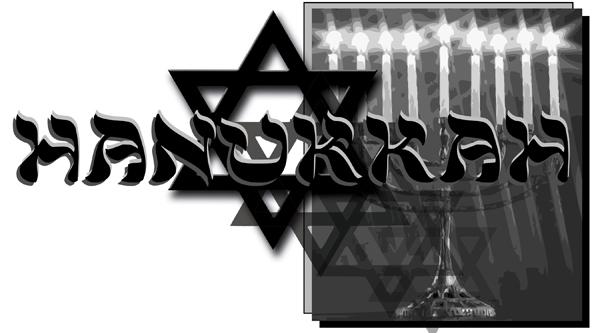Time to celebrate: Hanukkah

Time to celebrate: Hanukkah
December 13, 2007
It’s not uncommon for someone to say “Happy Holidays” and then have thoughts of Christmas trees and Santa Claus come to mind. But Christmas isn’t the only holiday celebrated during this season.
While some Sacramento State students may celebrate the birth of Christ this year, other students may be participating in the Jewish holiday known as Hanukkah.
“Over the past few decades, Hanukkah has come to play a larger role in Jewish life, chiefly because of its proximity to Christmas, with which it has nothing in common, except that it falls during the winter months,” said Robert Platzner, Sac State humanities and religious studies professor who has an interest in Jewish Studies.
“Contemporary Jews have found that giving gifts and the lighting of lights on Hanukkah helps to offset the overwhelming influence of the Christmas season, which in turn, enables Jewish families to preserve at least a measure of their distinctive religious identity,” he said.
The holiday is commemorated on the 25th day of the month of Kislev on the Hebrew calendar, and may occur from late November to late December on the Gregorian calendar. This year Hanukkah began at sundown Dec. 5 and will end at nightfall today, according to the Hebrew calendar.
Sarah Zarchin, Jewish Student Union president, said the holiday originated when the Maccabees, a group of Jewish fighters led by Judah and his brothers, liberated the land of Jerusalem from the Syrian Greeks. When the Greeks invaded the land of Jerusalem, they ransacked the Jewish temple.
There was only enough oil left in the temple to light one lamp for one day, but instead of burning out after the first day, the oil lasted eight nights. That is why there are eight candles in the Menorah (plus a shamas to light the other candles) and also why Hanukkah lasts eight nights and is referred to as the festival of lights, Zarchin said.
Zarchin said the celebration of Hanukkah entails lighting the menorah every night and saying the prayers that go along with the candle lighting. She said a common custom is playing dreidel, which is a kind of wooden top that has four sides with the Hebrew letters “nun,” “shin,” “hey” and “gimmel” inscribed on it. The game is played by betting with chocolate coins and spinning the dreidel.
“It is a celebration of life and loved ones,” Zarchin said.
She said the Jewish Student Union celebrated on Saturday with a menorah lighting. Guests also enjoyed latkes (potato pancakes) and challah (braided bread) in honor of the holiday. The club also showed the Israeli movie “Walk on Water.”
Hanukkah means different things to students. For Maria Rubin, a sophomore psychology major, it’s a time to be with her family and close friends.
“Taking time out and doing something for my religion is always beneficial, especially right now when I’m stressed with finals coming up,” she said. “It’s good to have a religious place to turn to and taking time out for Hanukkah has always been good for me to do.”
Rubin said she also partakes in Hanukkah because of her Jewish heritage and the positive aspects of practicing Judaism.
For Platzner, Hanukkah has personal and historical meanings, as he recalled his years of celebrating the holiday.
“My memories of Hanukkah go back to early childhood where the lighting of the menorah, the eating of latkes and games with the dreidel were essential features of the festival,” Platzner said.
He said Hanukkah, like Passover, is mostly based on being a family celebration, but unlike Passover – or any of the other major religious festivals of Judaism – no mention of Hanukkah can be found in the Hebrew Bible, which is the Old Testament of the Christian Bible.
“The events which Hanukkah commemorates occurred centuries after the Hebrew Bible was ‘canonized’ and the earliest written accounts we have of these events were written in Greek and preserved, ironically, by the early Christian community,” he said.
Platzner said Hanukkah is a remembrance of two things: a partial military victory over the Syrian-Greek armies of Antiochus IV in 165 B.C., and the recovery and ritual cleansing of the most sacred site in ancient Judaism, the Temple in Jerusalem.
There are songs and prayers that recall both events, but unlike a really major religious festival like Yom Kippur (The Day of Atonement), no restrictions on work or any other activity are a part of the Hanukkah celebration, Platzner said.
“Today, even those Jews who view this story as a quaint or archaic myth still view the lighting of the menorah as a important ritual link to the past,” Platzner said.
Lana Saipaia can be reached at [email protected]
Click here to read about another lesser-known holiday, Kwanzaa.
Click here to read about what many atheists do during this season of religious holidays.




























































































































